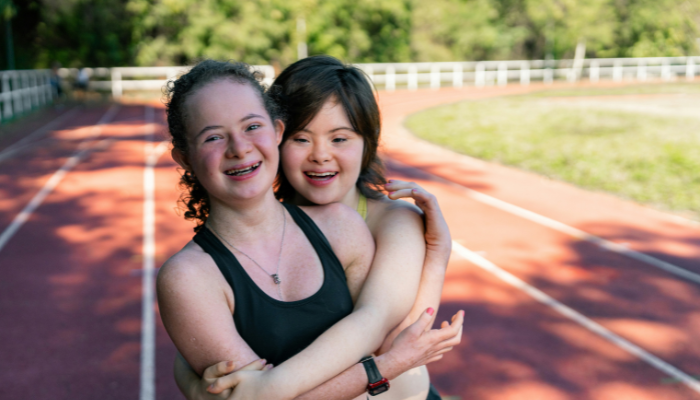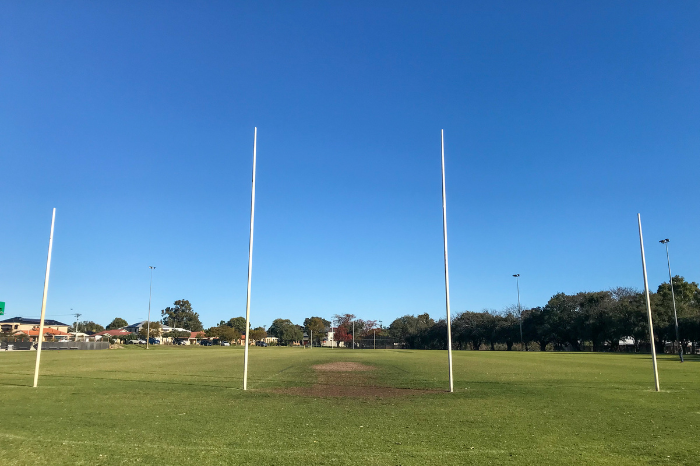
My Plan Manager recently interviewed Georgia, Community Engagement Facilitator at Mission Australia, to learn more about the free-of-charge service that’s available to people with disabilities and their family members/guardians.
Prior to her current role, Georgia spent time working as a LAC for Mission Australia, which runs local area coordination in South Australia and provides early childhood early intervention services nationally to participants aged under seven years.
Georgia: LACs are NDIS partners who work in the community to provide information, linkages and capacity building support to people with disabilities. They exist to provide information about what the NDIS is, how the community may be more inclusive and accessible, and what services – apart from the NDIS – are available to assist people with disabilities in their local communities.
This can involve a conversation about initial access to the NDIS, a first planning meeting with a participant, an implementation appointment where the LAC explains how to utiilise a plan, or explaining what a person’s review rights are if they're not happy with their funding or if their circumstances have significantly changed. Outside NDIS plan funding, LACs can provide support by explaining what mainstream and community services are available.
LAC services are completely free and available to all people with disabilities – including those who aren’t in the NDIS. To find your local LAC office, visit www.ndis.gov.au/contact/locations.
Georgia: If a person is thinking about applying for the NDIS and they are aged from seven to 64 years and require support, I recommend they (or their family member/guardian) first contact a LAC. If they’re under the age of seven, their first point of contact is an Early Childhood Early Intervention (ECEI) Coordinator.
An important component of this first contact is to discover if the support the participant is requiring is specialised disability support requiring the NDIS or if the support they are seeking is available through another mainstream service (i.e. education, health or justice). Having this conversation is an important first step in determining if the NDIS is right for that person and, if so, how they can request access.
Georgia: First, the LAC will check that the person is aged under 65 years, because unfortunately a person older than that can’t apply for the NDIS. They will also talk about residency or citizenship, because those who access the Scheme must be living within Australia and an Australian citizen, or hold a permanent visa or a protected special category visa.
Next may be a conversation about what disabilities typically meet NDIS access criteria (available at here} and what evidence of disability is required in an access request (i.e. permanent and significant disability).
Georgia: The first option is a verbal access request, where the person, their family member or guardian calls the National Disability Insurance Agency (NDIA) and says: ‘This is where I/they live, this is my/their age, this is what I/they believe my/their primary disability is, can I/they apply for the NDIS?’.
The NDIA will then add them to the system and send them a supporting evidence form, which requires confirmation from a treating professional. That could be a general practitioner (GP) or an allied health professional like an occupational therapist, speech pathologist or psychologist. Or it could be a specialist like a neurologist or psychiatrist.
This form needs to be completed and returned to the NDIA – and the catch is, there's a deadline to do this. LACs will advise a participant to really consider if they have all the information that’s required before submitting a verbal access request because, as you can imagine, it can be a very anxious process when someone has to gather that all together and get it to the NDIA. However, it can work really well for people who may have an extensive diagnostic assessment that provides a lot of information.
The second option to apply for the NDIS is to submit an access request form. It’s a whopping 28 pages, however it's very clear in what’s required. The first 12 pages are for the participant (or their family member or guardian) to complete. It asks questions like where they live, what their age and primary disability is, and if they have family members in the NDIS. The second part of the form is for their treating professional/s to complete.
The third option for accessing the NDIS is an evidence of psychosocial disability form – for people whose primary disability is within that psychosocial category (e.g., schizophrenia, bipolar, anxiety or depression). A General Practitioner (GP), allied health professional or specialist can help to fill the form out. You can find more information at Mental health and the NDIS | NDIS.
Georgia: The LAC may talk to the participant about reapplying at a later stage, when/if perhaps their circumstances change or more evidence is available to them. There isn’t a cap on the number of times a person can request access to the NDIS.
If the participant doesn’t agree with the NDIS' decision, they can gain support from the LAC to explore what their review rights may be, understand more about what the process to appeal the 'access not met' decision is and/or how they might connect to a disability advocate for further advice or ongoing support with appeals.
Georgia: When a person’s access request is successful (a person older than seven years), their application is typically sent to their LAC partner. The LAC will then contact the participant to set up a first plan appointment. This is where the LAC talks to the person about what their support requirements are, what their circumstances are, and what their current goals are – or what they want to achieve from their NDIS plan. LACs can hold review appointments, where they look at what is and isn’t working and gather evidence for a plan review.
Georgia: Local area coordination is a free community service delivered by NDIS partners and support coordination/specialised support coordination is a specific funded support delivered by NDIS providers (both registered and non-registered). Both LACs and support coordinators support participants with the implementation of their NDIS plans.
You can find more information at support coordination | NDIS.
If a participant has initially planned with a LAC, and they have a plan approved that includes support coordination, the LAC will contact the participant and ask if they have chosen a support coordinator who they want to work with. If they don't have a chosen support coordinator, the LAC can support the participant in finding one. Once chosen, the LAC is then able to complete a 'request for service.
Georgia: A LAC will first discuss plan management in a planning conversation, once a participant has NDIS access. If the participant tells them they want to be plan managed, the LAC will talk to them about putting that forward to the NDIS, and rehash that conversation at the point of plan approval. This is where the LAC can also help people to find providers.
To find your local LAC office, visit www.ndis.gov.au/contact/locations.
Or, if you are looking for a plan manager to take the stress out of the NDIS, join My Plan Manager at myplanmanager.com.au/join.


